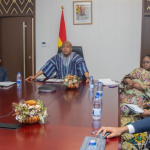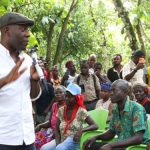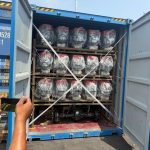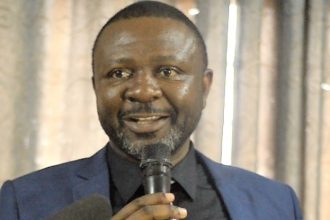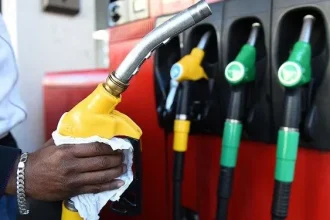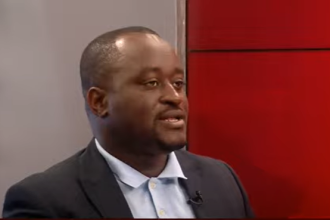Despite the onset of the COVID-19 and unplanned expenditure, the government should not exceed 8% of the fiscal deficit, a Prof of Economics, Peter Quartey, has cautioned.
The Director of the Institute of Statistical, Social and Economic Research (ISSER), expects expenditure above the 5% cap but expects the upcoming 2020 Mid-Year Budget Review by the Finance Minister, Ken Ofori-Atta to maintain fiscal discipline.
“Anything between 5-8% deficit should be fine,” he told theghanareport.com in an interview on Monday, July 21.
What is a fiscal deficit?
A fiscal deficit is a shortfall in a government’s income compared with its spending. The government that has a fiscal deficit is spending beyond its means.
The government projected its expenditures to fall in line with the Fiscal Responsibility Act, which imposes a deficit ceiling of 5% of GDP.
The Act, however, allows the government to suspend this restriction in the face of a public health emergency or an unanticipated severe economic shock.
Prior to the onset of the global pandemic, Ghana’s shortfall target was 4.7%.
However, Mr Ofori-Atta told Bloomberg in March that, “the deficit, which we had jealously guarded and kept under 5%, is now expected to widen north of 10%.”
In a recent interview ahead of the Mid-Year Budget presentation, Mr Ofori-Atta questioned concerns about the deficit when the focus should be on tackling coronavirus, which has claimed more than 150 lives.
The Finance Ministry, however, plans to revise this target to 6.6% of GDP due to the impact of coronavirus.
Election year deficits
Ghana’s highest budget deficit ever was recorded in 2012, an election year which saw John Mahama elected president.
Concerns have been raised because 2020 is also an election year coupled with the adverse impact of the pandemic.
The country’s successive governments have become notorious for overspending budgets in election years.
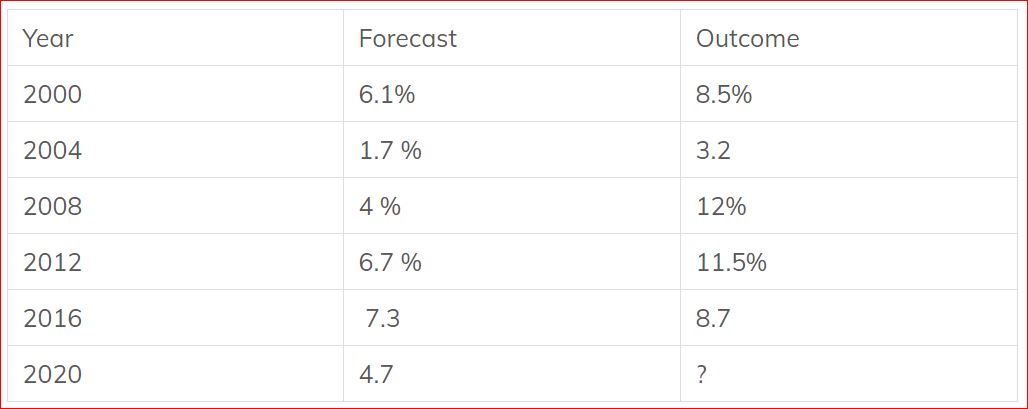
Given the revenue challenges, Prof Quartey expects the Finance Minister to outline new and efficient ways of increasing funds to invest in critical sectors to boost the economy projected to shrink in the coming years.
Ghana’s economy is estimated to shrink to 0.9%. Coronavirus has wiped off about 6% economic growth estimates, the Finance Ministry has said.
“I would like to see expenditure prioritization. So, the critical things should feature and then those that cannot be met. Perhaps we may want to hold and then when our revenue numbers improve then we tackle them,” Professor Quartey suggested.
He encouraged the government to pursue philanthropists to support with funds which would be channelled to support needy households and people adversely affected by the disease.
Such resources could also be used for more social interventions to ease the burden of Ghanaians.
Stimulus packages for large firms
Businesses look forward to a government stimulus package, and the Finance Minister has confirmed that beyond the GH₵ 600m given to SMEs, other sectors like hospitality and aviation are in line for support.
Prof Quartey is expecting the government to outline details of a stimulus package for large companies.
He wants more funds to be dedicated to domestication because of the COVID-19.
In agriculture, for example, “I expect some interventions to go there to stimulate production”.
He also highlighted the need for additional support for the pharmaceutical sector to minimise importation of PPEs, medication and other kits.
Year of roads
The government declared 2020 a ‘Year of Roads’ and released a list of roads to be constructed while others are expected to be revamped across all regions.
“Many Ghanaians would want to know whether we are still in the year of roads or COVID-19 has changed that focus. If it is still the ‘Year of Roads’, then we want to see the roads that would be tackled and which ones would not be,” Professor Quartey concluded.
Some roads outlined by the Finance Minister to be tackled in 2020 were :
Roads and infrastructure Projects for the Ashanti Region:
Ahiankwanta – Obuasi
Datano – Ahokwaa – Suhenso
Nyinahene – Awisesu
Nyinahene – Kyekyewere
Okomfo Anokye – Abuakwa
Suame Interchange
Oforikrom Interchange
Manhyia Sub – Metro
Suame Sub – Metro
Tafo Pankrono Sub – Metro
Asokwa Sub – Metro
Kwadaso Sub – Metro
Oforikrom Sub – Metro
Subin Sub – Metro
Nhyiaeso Sub – Metro
Bantama Sub – Metro
Mampong Inner City Roads
Roads and infrastructure Projects for the Brong Ahafo Region:
Atebubu – Kwamedanso – Kojokrom – Riverside
Sunyani Inner Ring Road
Sunyani Inner City Roads
Tepa Bomaa – Yamfo
Berekum Inner City Roads
Duayaw – Nkwanta
Odumasi – Seikwa Nkwanta
Bediako – Kasapi – Camp 15
Roads and infrastructure Projects for Eastern Region:
Kwabeng – Abomosu – Asuom
Kwabeng – Akropong
New Abirem-Ofoase-Akim Oda
Akyem – Ankaase town Roads
Akyem Fremponso
Mampong – Kofiase
Anwiankwanta – Obuasi
Kessekrom-Adiembra
Koforidua Interchange
Akroso – Asamankese
Roads and infrastructure Projects for Western Region:
Prestea Inner City Roads Benchema – Adwofia Asankragua – Agona – Sefwi Bekwai
Roads and infrastructure Projects for Central Region:
Awakrom-Amisano(Ekumfi) Apawusika Road and Links Agona Swedru Inner City Roads Ankamu – Achiase – Swedru Swedru – Bawjiase – Adeiso Other Selected Cape Coast Inner City Roads.
Roads and infrastructure Projects for Northern Region:
Tamale Interchange Nalerigu – Bunkpurugu Road Tamale – Salaga – Bimbilla Yendi – Tatale Karaga – Gushegu
Roads and infrastructure Projects for Upper West Region:
Lawra – Han – Tumu Lawra – Dikpe Bridge Road Projects for Upper East Region Tutulega-Sandema – Wiase Navrongo – Naga
Roads and infrastructure Projects for Greater Accra Region:
Taifa – Burkina – Nkatia Burger – Dome – Kwabenya Mosque
Christo Asafo Area Roads-Taifa
Pure Water Roads and Links – Kwabenya
Fan Milk Area Road – Anyaa
Adu Gyamfi Road – Anyaa
Selected Roads in Anyaa
Road Projects for Greater Accra Region:
Apostle Sarfo Onyinase Road
Pentecost University Road
Omanjor to Olebu Road
Abease Road to Ablekuma
A-lang Area Road-Sowotuom Race Course Medical Centre Road
Selected Roads in Gbawe
Nanakrom – Santeo Ashaiman Road
Road Projects for Greater Accra Region:
Adenta-Dodowa Road (Dualisation)
Ofankor Hospital Link Road
Abensu Afiama Taxi Road (Trobu)
Israel Junction Sound Foundation-Blue Gate and Yeboah Street-Nii Ankraman (Trobu-Amasaman)
Government, in partnership with the private sector through PPP arrangements, will undertake various projects including Accra–Takoradi.
Highway Dualisation, Accra–Tema Motorway and Accra – Kumasi Highway Dualisation.
Roads and infrastructure Projects for Volta Region:
Asikuma – Have (45km);
Have – Hohoe – Jasikan (83km); and
Ho – Dzodze – Denu (99km).
The Dualisation of Ho Main Roads;
The Construction of the Ho bypass;
Replacement and expansion works on the Lower Volta Bridge at Sogakpoe; and
construction of bridge over the Volta River at Volivo; and Dufor Adidome – Asikuma Junction Road.
Asutuare – Aveyime Road;
Upgrading of Klefe Town Roads in Ho Municipality;
Upgrading of Akatsi Town Roads;
Upgrading of Ketu South Area Roads;
Upgrading of Selected Roads in Kpando Municipality; and
Upgrading of Ketu North Area Roads.



